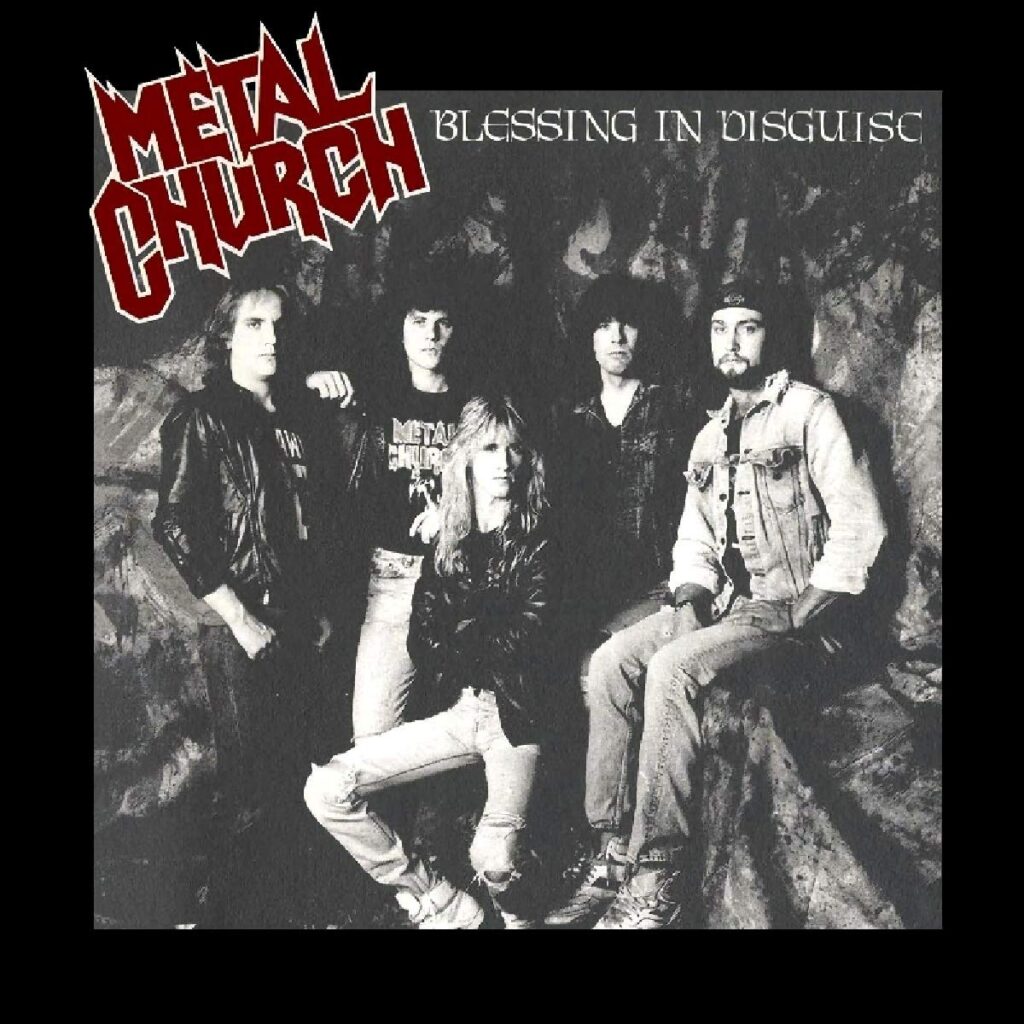I’m old enough to have grown up while heavy metal music was being invented, and young enough to have not outgrown it yet. I was in the generation most shaped by this genre, which I’m sure seems intimidating to most Baby Boomers and kitschy to most Millennials.
This week, we middle-aged metalheads were shocked by the unexpected death of Mike Howe, lead singer of Metal Church. He was barely older than I. Metal Church was a thrash metal band — one of the earliest, purest, and best in that sub-genre — yet somehow they never became a household name. I first discovered their 1989 album “Blessing in Disguise” when a college friend lent it to me on cassette. Everything about the band impressed me. There were no weak links.
One thing you’ll notice about the band photo is that there were five members. This means that Howe was a designated vocalist. Unlike the quartets Metallica, Slayer, or Megadeth, whose singers were all primarily instrumentalists, Metal Church hired Howe only for his voice and front man stage presence.
Thrash metal is not about beautiful voices, though Howe could evoke a haunting tone in his midrange. He sang in what I call the “brat” style, that gritty falsetto that you hear in Led Zeppelin, AC/DC, Guns ‘n’ Roses, etc. It’s a sound that I couldn’t emulate even if I tried. I feel that “powerful” is the most apt adjective for Howe’s vocal performances. Also unlike many other thrash bands, Metal Church wrote rangy melodic vocal lines in the “power metal” style. Howe handled the melodies with spot-on pitch control and an intense up-front focus that is unusual for this style. I often felt that he adopted the growl of Megadeth’s Dave Mustaine and actually, well, sang with it. Howe recorded harmony vocals. Sometimes he doubled himself in octaves, which gave his voice a fuller sound. At other times, it was true harmony, which added great depth to the song. Metal Church’s music was always dark and virtuosic. Their lyrics were sometimes juvenile but usually thought-provoking.
If Metal Church is new to you, or if you “just don’t get” thrash metal, give this song a try first: the radio / video-friendly version of “Badlands” (all my recommendations appear at the bottom of this post). The vocals come in after just 12 seconds, and I think you’ll have to agree that, by the 1:00 mark, they definitely grip your attention!
If you’re looking to travel further down the Metal Church rabbit hole, I would next refer you to some of their great epic songs. “Anthem to the Estranged” is about people going through the worst moments of their life like homelessness or alcoholism. “Rest in Pieces” is about the sinking of the Titanic. “Little Boy” is about the atomic bomb dropped on Hiroshima. I embed my favorite versions of each video below.
As for their full albums, in my opinion “Blessing in Disguise” (1989) and “Hanging in the Balance” (1993) are in a class of their own. “The Human Factor” (1991) was from the same era, though that one escaped my attention until recently. After decades apart, Howe and Metal Church reunited for the albums “XI” (2016) and “Damned if you Do” (2018). I am not familiar with them at all. There are several other Metal Church albums with different vocalists.
And without further adieu, here are those recommendations:
“Badlands” from “Blessing in Disguise” (lyrics)
“Anthem to the Estranged” from “Blessing in Disguise”
“Rest in Pieces” from “Blessing in Disguise”: A fan video with footage from the film “Titanic”
“Little Boy” from “Hanging in the Balance” (lyrics)
“Blessing in Disguise” full album
“Hanging in the Balance” full album


